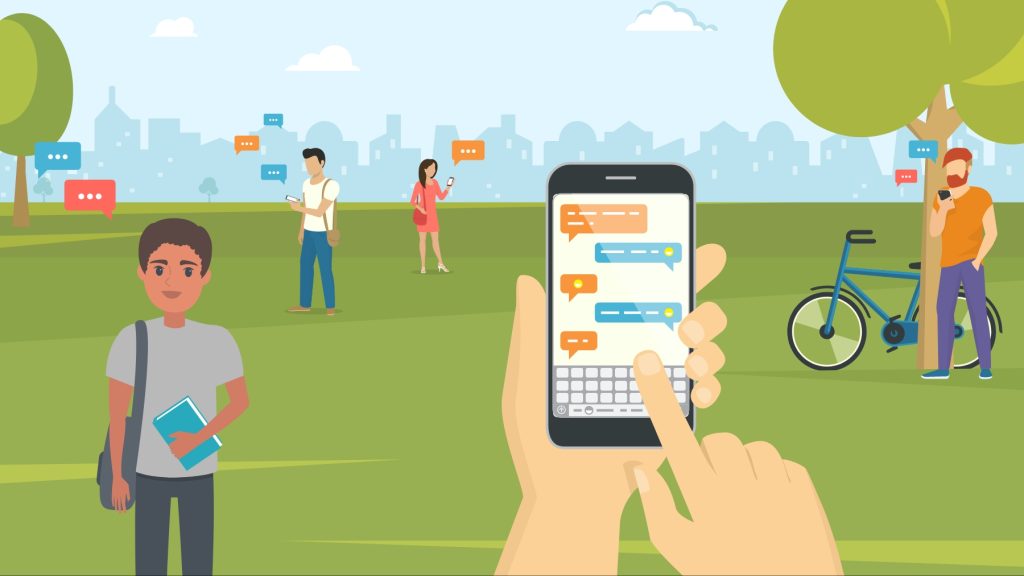
A recent survey showcased the intricate relationship between adolescents and digital devices. Can minimal phone usage solve the issue?
- Nearly three-quarters of American teens reported feeling happier and more at peace when not using a smartphone.
- Teenagers view smartphones as both facilitators of creativity, hobbies, and academic success, as well as inhibitors of good social skills.
In late 2023, the Pew Research Center conducted a survey that showcased the complexity of how adolescents perceive and interact with digital devices.
It turns out that three out of four teenagers are notably happier and more at peace without their phones.
They surveyed 1,453 U.S. American teens aged 13 to 17 along with one parent. Almost three-quarters of teens expressed feelings of happiness or peace when they were without their smartphones.
Despite this, most have not taken proactive measures to limit their phone or social media usage. Dr. Ryan Sultan, Director of the Integrative Psych and Mental Health Informatics Lab at Columbia University, told Inside Telecom that “several psychological factors prevent teenagers from limiting their phone or social media use, despite feeling happier without them. These include the fear of missing out, the allure of instant gratification, social norms that emphasize constant connectivity, and the habit-forming nature of smartphone use.”
Jennifer Toof, Owner and Therapist at Trauma Informed Counseling and Consulting, explained to Inside Telecom that “there’s also a perceived need for instant responses—My friend just messaged me, so she needs me to respond right now!”
The study found that almost half the parents reported setting limits on their teens’ phone usage. Half of them is also guilty of spending excessive time on their phone. Surprisingly, most teens believe that smartphones facilitate creativity, hobbies, and even academic success. They do acknowledge, however, that it hinders the development of good social skills. Both parents and teens admitted to sometimes arguing over excess mobile usage.
This told the researchers that, one, not all parents have the same approach to digital supervision. Two, families are facing difficulties in navigating digital boundaries and expectations. Three, researchers should investigate the long-term impact of digital technology on interpersonal interactions and relationships among young people. And four, adults are not modeling healthy digital behaviors for their children.
Dr. Sultan added that “the lack of consistent digital supervision and the absence of healthy digital behavior modeling by adults further complicate teenagers’ ability to establish a balanced relationship with technology.”
So, what to do with this information? We’ve known all along what kind of effect the phone has on us, but to read it feels vindicating.
Then we ask ourselves: could we ever go back to the pre-smartphone era? Not a pre-mobile phone era, because it wasn’t until our phones became smart that we somehow became stupidly dependent.
But mobiles are no longer a trend or a status symbol. They are here to stay as evidenced by the fact that people are always on their phones. So, the more appropriate question becomes how to strike a balance between being connected and finding the happiness that only going without a phone can give.
Not having a phone is not a solution. With how landlines and payphones are going extinct, what happens if you find yourself stranded somewhere? A flip phone is always an option, but they don’t feel as practical anymore.
One way of going about it can be with phone management. You can designate specific areas in your home where phones are off-limits, like at the dinner table. Also, some phones have built-in features to set time limits for social media or other distracting apps. There are apps to limit screen time for this as well.
Caroline Cadwell, CEO and Co-founder of Unpluq, explained to Inside Telecom that “much like blaming a neutral party, using a tool rather than a person to clarify boundaries around phones, games, TVs–and anything with a screen–will help users follow the rules that are in place to protect our wellbeing.”
Then there’s finding joy offline. A lot of people have started neglecting their hobbies and rely on social media or mobile games to fill their free time. Between the long working hours and how on-demand distractions have become, people forget to pick up what they once found peaceful and enjoyable. Even walks or hanging out in green spaces can boost happiness.
Forgive my question, but when was the last time that you hung out with people and none of you had the urge to continuously check your phone? Or took a breather? Or just remind yourself that you are alive and allowed to stop and smell the roses?
This dependency on phones has also nurtured a sense of urgency. Everyone is living in the fast lane, but they are also struggling to keep up. But remember, it’s not an overnight-success kind of story. It’s a long journey towards unlearning bad habits we picked to cope with everything thrown at us.
Inside Telecom provides you with an extensive list of content covering all aspects of the tech industry. Keep an eye on our Community section to stay informed and up-to-date with our daily articles.